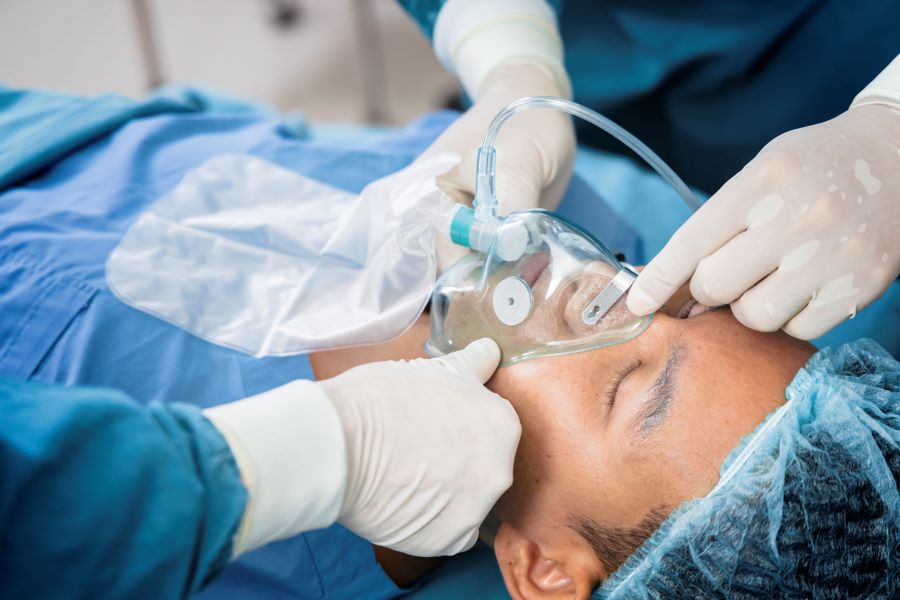When babesiosis turns deadly

In their case report “Fatal Babesiosis in an Immunocompetent Patient,” Selig and colleagues describe a 48-year-old man who died within days of being admitted to the hospital from babesiosis and yet, he didn’t have any significant risk factors for severe presentation of the illness. [1]
The man presented to the emergency department with fatigue, generalized weakness and intermittent subjective fevers. The symptoms had worsened over a 2-week period.
The patient also complained of headaches, vision changes, nausea, vomiting and diarrhea. And had a medical history of type 2 diabetes and intermittent asthma.
“He denied any known recent tick or animal exposures, any recent travel, or previous blood transfusions,” the authors write.
“On arrival to the ED, the patient was tachycardic, afebrile, and normotensive,” the authors write. “A blood parasite smear returned with small ring-form parasites with 25% [red blood cells] infected, consistent with babesiosis.”
“Human babesiosis is an emerging infectious disease with a progressively rising number of cases in the Northeast over the last few decades.”
The patient was admitted to the intensive care unit and began treatment with azithromycin and atovaquone, along with doxycycline for any co-infections, such as Lyme disease.
However, the next day, the patient’s conditioned deteriorated and he required endotracheal intubation with mechanical ventilation. Several days later, he died.
“A few days following the patient’s death, babesia studies returned with PCR positive for B. microti and positive anti body findings (IgG 1:128 and IgM 1:160) confirming the babesiosis diagnosis,” the authors write.
PODCAST: Delayed onset Babesia
The authors suggest, “Clinicians should be aware that even in patients without the classic risk factors of asplenia, advanced age, and immunocompromised status for severe presentations of babesiosis, a deadly case can present.”
They noted that although their patient suffered from type 2 diabetes, an immunocompromised condition, diabetes has not previously been shown to be a significant risk factor for severe babesiosis.
Related Articles:
The case of an untreated Babesia infection
Babesia symptoms can be deadly: a family’s story
Wide range of babesia symptoms and presentations
References:
- Selig T, Ilyas S, Theroux C, Lee J. Fatal Babesiosis in an Immunocompetent Patient. R I Med J (2013). 2022 Aug 1;105(6):20-23. PMID: 35881994.



John Dow
09/19/2022 (8:51 am)
When my wife experienced extreme fatigue, muscle and joint pain, headaches, neurological symptoms and others including a change in personality over a month after attachment of a female Lone Star tick for 6 to 10 hours, our PCP signed a blood test request for iGeneX. The results were positive for Bartonellosis, Ricketsii, a serum Titer of 320 for Babesia and indeterminate for Borrelia. Two one month courses of Doxy did not result in improvement. Finally an alternating 10 day protocol of two ABX and Quinine and Hydroxicloroquine for forty days resolved her symptoms.
Dr. Daniel Cameron
09/19/2022 (11:04 am)
I have found treatment for Babesia helpful. I typically use a combination of Malarone and Zithromax daily helpful rather then pulse therapy.
Alex P
09/08/2022 (7:08 pm)
Apparently we don’t have Lyme disease or human babesiosis in Australia and yet we have ticks and vectors galore and people falling deathly ill post vector bites. This reports says first case of Australian Babesiosis, yet clinicians will still deny the fact it may be here. Our science is still catching up whilst some minds still remain closed to the possibility… https://www.mja.com.au/journal/2012/196/5/first-report-human-babesiosis-australia
Lorraine Remza
08/27/2022 (1:02 pm)
Babesiosis and lyme,
bcommunications has been poor between the doctor who performed the test and me.
Maybe I can email the test result and we can have a consult. I don’t want to be over medicated
I have taken mepron and azithromycin and supplements.
Is the IGX FISH test an accurate reading for babesiosis? It presented as positive
Lyme immunoblot IgG serum showed as positive – bands 28 +, 31 ++, 41+, 45 IND
Thank you.
Also, if lyme bands 23 and 41 are indeterminate on the IGX borreliosis does it need to be treated?
Dr. Daniel Cameron
08/29/2022 (10:29 am)
I wish the tests were better. I have to rely on clinical judgment. I also work with other doctors at the same time to be sure I do not overlook another illness.